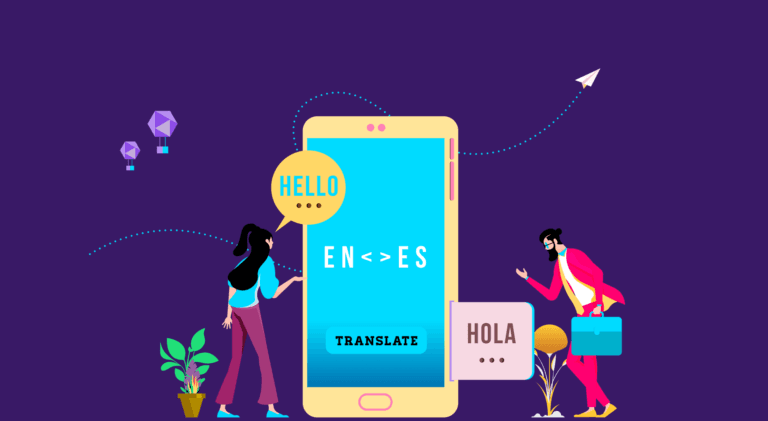
Globalization has infinitely expanded the potential of market outreach. It is now possible to scale and expand to markets beyond borders without having to think about marketing challenges.
While these challenges do exist, they have been minimized to a great extent thanks to web translation. To translate a webpage means to invite newer audiences into your fold by eliminating language barriers.

Studies show that when you translate a website to English, you will be able to reach about 27% of the market. But if you go for website translation services in other languages, you should be able to reach 73% of the global market. In other words, that is the proportion of the global market that prefers to visit web pages written in a local language.
One has to be careful though while translating web pages. Translation, if done literally and word-for-word, may lead to an outcome that is confusing or even meaningless. What can work better commissioning a website language translator. These are essentially tech-driven software that allow for more accurate website translation.
What is Web Translation?
Website translation is the process of converting web text from language to other languages. The objective of the translation can be just to share information in a local language or to build the brand name in foreign markets. But as a standard practice, most website owners prefer to translate all web pages in order to facilitate smooth viewing for customers in different regions of the world.

Needless to say that the translator or the translation agency should be well-versed with what the target audience wants. They should be aware of the cultural differences and contextual meaning of phrases. They must be able to ensure that the web translation is easily understandable for the target audience and conveys the correct values of the brand.

Top Website Language Translator Tools
There are many website language translator tools available on the market today. Choosing the right one for your needs can be a challenge, as there are a wide variety of features to consider. In this article, we will provide an overview of the top website language translator tools, as well as their key features.
1. Google Translate
This is a great option if you need a quick and easy way to translate your website. It’s also free to use, which is a big plus. It offers more than 100 languages and gives you pretty decent results. All you have to do is copy your content in the document section and let the tool do the job.

You will be amazed at the efficiency of the new Google Neural Machine Translation System. However, it doesn’t always produce the most accurate results. It can overlook a few words at times in case of complex sentences and misinterpret context.
2. Microsoft Translator
This is a powerful tool that can help you quickly and easily translate your website into multiple languages. It is highly accurate and provides great website translations. It is fast and easy to use, so you can get your website translated quickly and without any hassle.

Microsoft Translator is also compatible with a range of different platforms and browsers, so you can use it on any website. It offers a more accurate translation than Google Translate. However, it’s not free to use. A subscription can give you access to more than 70 languages with a variety of features.
3. DeepL Translator
This is a newer tool that offers state-of-the-art translation technology. This webpage translator is a neural machine translation service that provides accurate and high-quality translations for websites.

It offers a wide range of features, including the ability to translate multiple languages, automatic language detection, and support for a variety of file formats. While it offers only 28 languages, you do get the best website translation that is reliable.
4. Bablic
This is an easy-to-use platform that allows you to quickly and easily translate your website into multiple languages. They also offer a variety of features that can help you optimize your website for different markets, including language-specific SEO, Gloryfy by Bablic, and more.

You can choose up to 30 languages for website translation and use the trial version for one language. The paid version does offer better services for websites and new brands.
5. Smartling
This tool offers a high-quality, human-powered translation service, rather than just machine-run programs. The tool offers you a robust platform that can handle any scale of website translation, from a few pages to an entire website.

The team along with technology ensures the full upgrade of websites to multiple languages, in an organized fashion. With this platform, you get the best of both worlds. However, the price can be considered expensive for small businesses, starting at $200 per month.
Benefits of Website Translation
In a world that is increasingly connected, businesses cannot afford to operate in just one language. Customers and clients come from all corners of the globe, and to reach them, you need to speak their language. This is where website translation comes in.
There are many benefits of translating your website into multiple languages. It can help you reach a wider audience, build trust with customers, and improve your search engine rankings. Translation can also improve the user experience on your website and make it more accessible to people from all over the world.
Time to Go Global!
If you’re thinking of translating your website, consider the many benefits it can offer your business. Website translation is an essential tool for businesses that want to succeed in the global marketplace.
Finally, you can choose the right website translator based on your unique requirements as a brand. Free online tools can be great for a webpage translation but a full site revamp can ask for a professional team. Make sure that you invest in a good language translation service that gives you long-term benefits.
FAQs
If you’re targeting a global audience, then you’ll need to consider the most popular languages in the world. English, Spanish, and Mandarin are all good choices. If you’re targeting a specific region, then you’ll need to consider the languages spoken in that region.
When it comes to website translation, there is no one-size-fits-all answer. You must consider whether you need a literal translation or a creative translation. At times, Google Translate can be enough for you. But for more in-depth work, you can hire a professional website translator, who has experience in your industry.
The answer may depend on your particular needs and preferences. If you need a quick and efficient translation of a large document, a machine translator may be the better option. If you need a translation that is accurate and true to the original meaning of the text, a qualified human translator is often the better choice.
You can use automatic translation tools or hire professional translators.
It’s not just the content but also the UI/UX that would need to be updated.
You must also change the timings and prices as necessary.
Ensure that your target audience is easily able to navigate through the website through a test run.
Latest Blogs
Explore the best healthcare SEO services for your medical practice. Improve online visibility and effectively reach more patients in need of your services.
Discover top social media agencies specializing in banking solutions, enhancing financial services and driving engagement.
Explore top B2B content marketing agencies of 2024. Engage decision-makers with impactful, high-quality content strategies.
Get your hands on the latest news!
Similar Posts

Translation
5 mins read
All You Need to Know About Language Translation and Terminology Management

Translation
5 mins read
6 Reasons to Translate Content into German

Translation
5 mins read